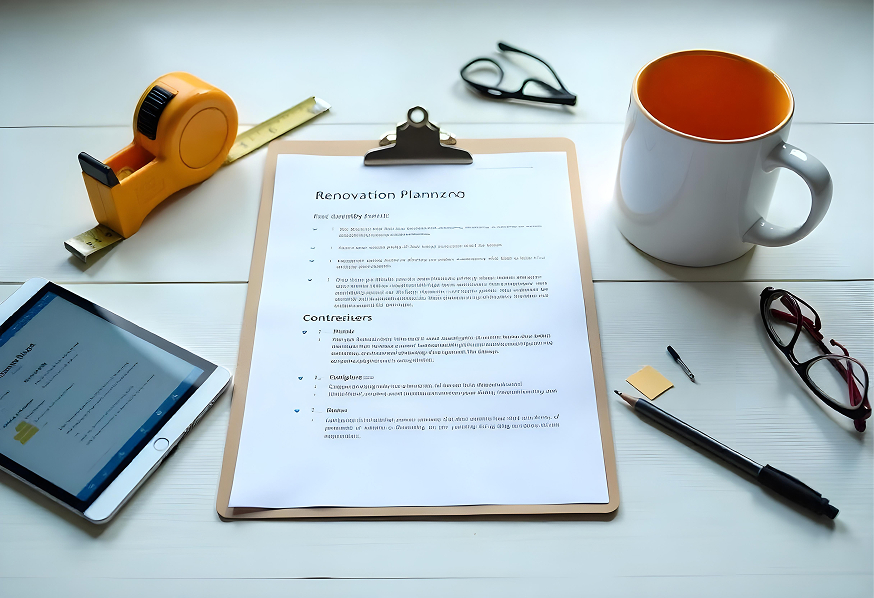Renovating your home is an exciting journey—but without a solid plan, it can quickly become overwhelming. Whether you're updating a single room or tackling a full-home transformation, these 10 smart tips will help you stay on track, avoid costly mistakes, and bring your vision to life.
1. Start with a Clear Vision
Before calling a contractor or shopping for materials, take time to define exactly what you want. Create a mood board, browse Pinterest, or save inspiration photos. Understanding your style, goals, and must-haves will guide every decision moving forward.
2. Set a Realistic Budget
Renovations can get expensive fast. Determine how much you’re willing to spend and build in a 10–20% buffer for unexpected costs. Keep in mind that quality materials and experienced professionals often cost more—but are worth the investment.
3. Plan the Timeline Thoughtfully
Estimate how long the project will take and plan accordingly—especially if you need to move out or live around the work. Delays happen, but having a schedule helps you prepare and keeps everyone accountable.
4. Hire the Right Professionals
Choosing the right contractor or renovation team is key. Look for licensed, insured, and experienced professionals. Ask for referrals, check online reviews, and don’t hesitate to ask for a portfolio of past work.
5. Get the Proper Permits
Depending on your project, you may need permits from your local municipality. Skipping this step can result in fines or complications when selling your home. A good contractor will help guide you through the permit process.
6. Prioritize Structural & System Updates
If your renovation involves plumbing, electrical, or foundation work, prioritize these over cosmetic upgrades. It’s much harder and more expensive to fix foundational issues once the walls are closed up and the tile is down.
7. Don’t Over-Customize
It’s tempting to design every inch exactly to your liking—but consider long-term value and resale. Stick with timeless choices for things like cabinets and flooring, and personalize with paint, furniture, and décor.
8. Keep Communication Open
Stay in touch with your contractor throughout the project. Weekly check-ins can help catch small issues before they become big problems. If you’re working with designers, make sure everyone’s on the same page.
9. Expect the Unexpected
No renovation goes exactly as planned. Hidden problems, shipping delays, and weather can all impact your timeline. Stay flexible, patient, and solution-oriented to keep things moving forward.
10. Document Everything
Take before and after photos, save receipts, and keep a record of changes. Not only will this help you stay organized, but it’s also useful for insurance purposes and can boost your home’s resale value.
Conclusion
Planning a renovation takes time and effort, but with the right preparation, the results are incredibly rewarding. Whether you're renovating for comfort, style, or value, these tips will help you create a home that truly reflects your vision.





